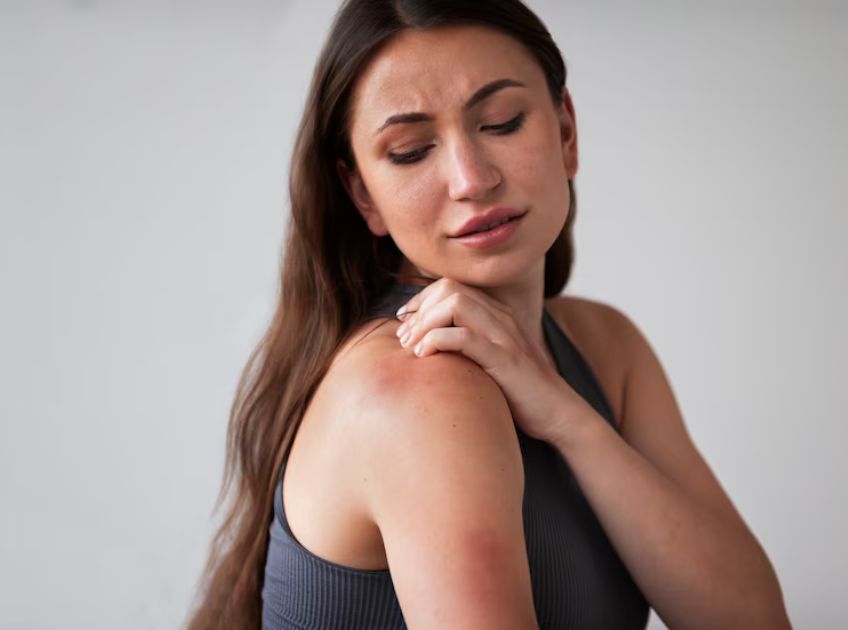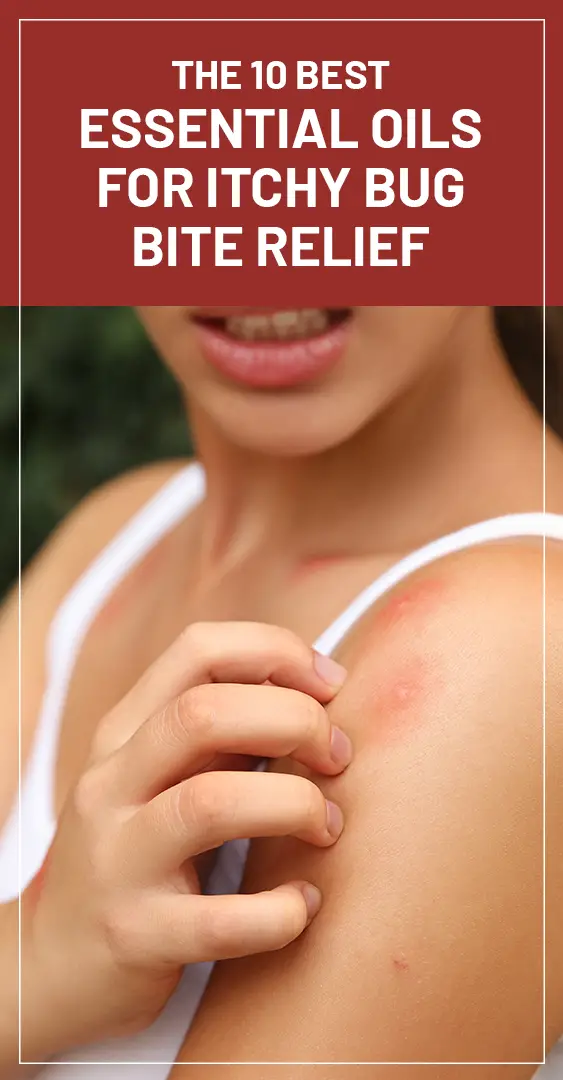
Important: This article is for informational purposes only. Please read our full disclaimer for more details.
Mosquitoes, ants, gnats, and other biting insects are an inevitable part of outdoor life. But while the bites may be small, the discomfort they bring—itching, swelling, redness—can quickly become unbearable. If you’re searching for a natural, chemical-free way to find relief, essential oils may offer the soothing solution you need.
Used for centuries in herbal medicine, essential oils contain powerful anti-inflammatory, antimicrobial, and analgesic properties. But can they help bug bites? Let’s explore what science reveals and which oils are most effective.
Why Bug Bites Itch and Swell: The Body’s Reaction
When an insect bites or stings you, it injects saliva or venom into your skin. Your immune system responds by releasing histamines, which trigger inflammation and cause itching, redness, and swelling.
According to the Centers for Disease Control and Prevention (CDC), most bug bites are harmless and symptoms subside within a few days (1)(2). However, scratching can increase your risk of infection, which is why calming the irritation quickly is key—and that’s where essential oils may come in.
The Best Essential Oils for Bug Bites
These essential oils are backed by anecdotal use and scientific studies for their soothing, anti-inflammatory, and antimicrobial benefits:
1. Lavender Oil
Why it works: Lavender is known for its calming effects—not just emotionally, but also on the skin. It has anti-inflammatory and pain-relieving properties that help soothe itching and speed healing.
Study Insight: Research published in Phytotherapy Research (2015) supports lavender’s anti-inflammatory potential on the skin (3).
2. Tea Tree Oil
Why it works: Tea tree oil is a powerful antiseptic that helps reduce itching, swelling, and the risk of infection.
Bonus: It’s antibacterial and antifungal qualities may prevent infected bug bites.
Note: Always dilute before applying to avoid irritation.
3. Peppermint Oil
Why it works: The menthol in peppermint oil provides a cooling sensation that can relieve itchiness and distract nerve endings.
Caution: This oil is potent—never apply undiluted and avoid sensitive areas.
4. Chamomile Oil (German or Roman)
Why it works: Chamomile is a skin-soothing hero with anti-inflammatory and calming effects. It helps reduce redness and irritation while promoting healing.
Study Insight: A 2010 study in Molecular Medicine Reports demonstrated chamomile’s ability to suppress inflammation in skin conditions.
5. Eucalyptus Oil
Why it works: Eucalyptus is a natural anti-inflammatory and also has antimicrobial properties. It can relieve the itch and protect against secondary infection.
Note: Always dilute and avoid near eyes or mucous membranes.
6. Basil Oil
Why it works: Basil contains eugenol, a natural anesthetic that can numb itching. It’s especially useful for mosquito bites.
Application tip: Mix with a carrier oil and apply directly to the affected area for fast relief.
How to Use Essential Oils Safely on Bug Bites
Essential oils are highly concentrated, so proper use is crucial to avoid irritation or allergic reactions.
Follow these guidelines
- Always dilute: Mix 2–3 drops of essential oil in 1 tablespoon of carrier oil (like coconut, almond, or jojoba oil).
- Patch test first: Apply to a small area of skin to check for reactions.
- Apply directly to the bite: Gently dab the diluted oil with a cotton swab onto the affected area.
- Avoid broken skin: Don’t use essential oils on open wounds or deep scratches.
DIY Essential Oil Bug Bite Soothing Blend
Try this calming blend for fast relief:
Ingredients
- 2 drops of lavender oil
- 2 drops of tea tree oil
- 1 drop peppermint oil
- 1 tablespoon coconut oil
Directions
- Mix all ingredients in a small glass jar. Apply a small amount to bug bites 2–3 times a day as needed.
When to Skip Essential Oils and See a Doctor
Essential oils work well for most minor bug bites, but seek medical attention if you experience:
- Severe swelling or spreading redness
- Fever, chills, or joint pain
- Difficulty breathing (possible allergic reaction)
- Signs of infection, like pus or heat around the bite
For serious reactions like those caused by ticks, spiders, or allergic bee stings, essential oils are not a substitute for medical treatment.
Frequently Asked Questions (FAQ’S)
Q1: Can essential oils be used on kids for bug bites?
A. Yes, but with extra care. Use only child-safe oils like lavender or chamomile, dilute more heavily, and avoid use on infants under 2 years.
Q2: How often can I apply essential oils to bug bites?
A. Apply diluted oils 2–3 times daily. Overuse may irritate the skin, especially in sensitive areas.
Q3: Can I mix multiple essential oils?
A. Yes. Combining oils can enhance their effects, as long as each is properly diluted and skin-safe.
Final Thoughts: Nature’s Oils to the Rescue
Essential oils can be a gentle and effective way to manage bug bite symptoms—soothe itching, reduce swelling, and prevent infection without reaching for harsh chemicals. With the right dilution and application, they offer a powerful tool in your natural first-aid kit.
You Might Also Like:
- How to Use Tea Tree Oil for Fleas?
- 8 Essential Oils for Fleas And How To Use
- The 7 Best Essential Oils For Corns
- Top 5 Essential Oils That Help Psoriasis
- 8 Best Essential Oils for Thyroid Problems – Benefits & How To Use?
- 8 Essential Oils for Migraine Pain Relief | How To Use It
- 15 Best Essential Oils for Cough: Benefits & How to Use
- 10 Best Essential Oils for Headaches
- 7 Best Primers For Glowing Skin
- 7 Best Lotion For Insect Bites
- 7 Essential Oils for Ants
- 10 Essential Oils for Pain Relief: How To Use It?
- The 10 Best Essential Oils For Burns
- Essential Oil For Keratosis Pilaris
- 10 Essential Oils for Cold Sores: How It Works?
















